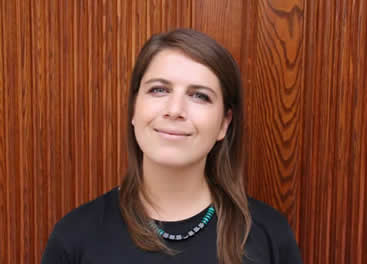
- lolsen@ucsd.edu
-
9500 Gilman Dr.
Mail Code: 0533
La Jolla , California 92093

Contact Email: lolsen@ucsd.edu
Website: www.laurendolsen.com
Areas of Specialization: sociology of medicine, knowledge, inequalities, culture, organizations and interdisciplinary work
Dissertation Chair: John H. Evans
Dissertation Title: Constructing Relevance and Reproducing Inequality: The Integration of the Humanities and Social Sciences into Contemporary U.S. Medical Education
For decades social scientists, federal agencies, and hospitals have documented persistent health and healthcare disparities in the U.S. healthcare system, focusing on the incidence and persistence of disparities that systematically disadvantage underrepresented groups. The enduring challenge in this multidisciplinary effort has been the application of this research – how to translate this body of research about health and healthcare disparities into actionable plans for their reduction. In coordination with humanities and social sciences scholars, leaders in the U.S. medical profession have embraced this challenge head on, integrating humanistic and social scientific knowledge into medical education to help reduce the role that medical professionals play in the production of health and healthcare disparities. In my dissertation, I address how scholars from diverse disciplinary backgrounds successfully integrate humanistic and social scientific knowledge with biomedical knowledge in the education of medical students, with the hope of improving future patient care. I interviewed 90 medical educators and students: 15 humanities scholars, 15 social science scholars, 30 medical educators, and 30 medical students about their conceptualization of humanistic and social scientific knowledge, its purpose in medical education, and the challenges and opportunities they confront when introducing these sets of knowledge into their medical education curriculum. I contextualize this data with observations, academic journal articles, curricular materials, student survey data, and professional, institutional and legislative histories.
I find four main approaches to integrating the humanities and social sciences into contemporary U.S. medical schools. Enhancing the theoretical and practical understanding of how humanistic and social scientific knowledge is produced, evaluated, and applied, I identify a) the operative discourses that medical educators and students draw upon in understanding the humanities and social sciences and b) the institutional features of schools that pattern these understandings.6 First, drawing upon my in-depth interview, observational, and survey data, I explain how medical educators and students evaluate the humanities and social sciences for the training and practice of medicine. Second, drawing upon historical and institutional data, I explain the variation in understandings and curricula by situating these discourses within the broader historical and social context and organizational structure of the school. I find that approaches vary according to the institutional features of the medical school, like location (e.g., urban), rank, leadership structure, financial resources, intellectual resources (e.g., proximity to undergraduate campus; joint or interdisciplinary hires; research centers), faculty and student representation, and program requirements (e.g., community service; research).
For example, in one of my chapters, I show that in their attempt to address racial disparities in the provision of healthcare, the U.S. medical profession has reproduced racial inequalities of their own. In this chapter, I draw upon interview data with medical educators and students to detail how medical educators offload the instruction on the social underpinnings and consequences of race onto students, particularly students of color. I develop the concept of theconscripted curriculum to capture how students’ social identities are utilized by educators in the professionalization process. In the case described in this chapter, educators create the conscripted curriculum by eliciting students to share their social experiences with race in the small group setting while only providing students with didactic material on biological understandings of race. As consequences of educators having established the conscripted curriculum, students of color report experiencing emotionally exhausting and unpaid labor, and educators depict the social implications of race in healthcare as unimportant.
In conclusion, in my dissertation I examine how medical schools produce different curricular structures. In so doing, I explain how an applied field, like medicine, marshals diverse sets of knowledge to solve social problems and how the medical profession conceptualizes the essential building blocks of doctoring. Moreover, I examine how each approach to curricular integration constitutes a reflection of how the medical profession contributes to or challenges existing structures of inequality.